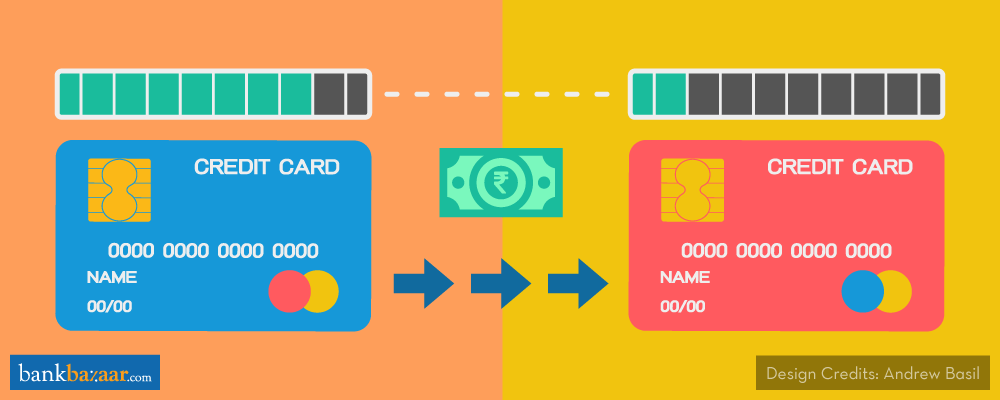Credit Card balance transfer could help you avoid high-interest charges. However, it should be a choice only after weighing all the pros and cons.

Credit Card is the freedom to spend without bothering about cash. It enables a user to shop now and pay later, and also works as a backup for unforeseen emergencies when you may not get the time to manage cash. The amount spent by using a Credit Card can be paid later. However, sometimes you may find it difficult to repay the outstanding balance due to other unavoidable financial obligations and fund crunch. You can’t leave your Credit Card unattended and spoil your Credit Score. In such situations, transferring the Credit Card balance could come to your rescue, which in simple terms means transferring the amount you owe on one card to another one.
If you don’t know how and when you should consider transferring your Credit Card balance, then take a look at below given crucial points.
Should You Consider Transferring Your Credit Card Balance?
Credit Card Balance Transfer comes handy for people who have higher debt on the card than what they can immediately repay. In such a scenario, you may opt to pay the minimum due and transfer the card balance to another one, which is offering lower interest rates. This would mean it would be cheaper to pay the due through the other card.
If you hold multiple Credit Cards, transferring the dues to a single card could help you manage the debt in a more efficient way. You may consider going for a Credit Card balance transfer as it could help you save the extra interest amount that you end up paying due to accumulated and pending Credit Card bill.
You get the option to either transfer the balance to another card or by opting to convert the outstanding amount into EMIs. A Credit Card company normally charges interest at around 36% to 48% p.a. whereas an EMI conversion would cost you only 12% to 18% p.a. interest.
Additional reading: Credit Card Handbook: All Questions Answered
Should You Do It Often?
When you transfer the balance from one card to another, then the credit utilisation of the card may increase significantly. High credit utilisation ratio can impact your Credit Score negatively.
Some cards have restrictions such as minimum transfer amount, minimum active usage period of the card of around 6 months, maximum transfer up to 60% to 75% of card limit etc. Card companies usually check the Credit Score before allowing the balance transfer.
Some Credit Card companies also offer benefits such as reward points if you transfer the balance to their card offering. You must evaluate such offers and assess the benefits before transferring the balance.
Things To Keep In Mind
Balance transfer doesn’t come free. You must look at the charges levied on the balance transfer each time. Some cards offer balance transfer benefits for a limited promotional period, thereafter they may levy a higher amount. It would make sense to be aware of all the charges before you opt for balance transfer. Usually, you may be charged around 2% to 3% as transaction cost when you transfer the balance.
If you are looking to opt for a balance transfer with EMI option, then always check the interest on such EMI offer.
Some banks do not allow a certain type of transactions for a balance transfer, so you must check with the banks how much total balance you would be able to transfer out of total balance. When you transfer the balance along with EMI option then some banks may put a restriction on pre-payment of EMI or pre-closure of the loan, and you may get penalised for such prepayments. You should always check such terms before you transfer the balance.
You must read the fine prints before you go for a balance transfer as terms and conditions may vary from bank to bank.
Balance transfer could help you save money by shifting from a high-interest card to the lower one and it also helps you manage the debt effectively. However, it should be a choice only after weighing all the pros and cons.
BankBazaar is a leading online marketplace in India that helps consumers compare and apply for Credit Card, Personal Loan, Home Loan, Car Loan and insurance.